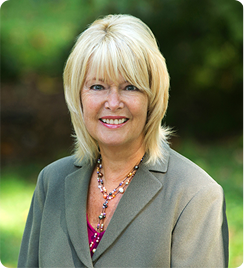
Sometimes you feel lost, directionless, confused. It can happen in your work life, your personal life, or your family life. It’s as if all you believed in and counted on has changed. Bethany felt that jolt when her husband wanted a divorce. Owen fell into a tailspin when he was laid off.
Think of times when you lost your way. Perhaps it was due to external circumstances or instead a deep change within. What follows is a sense of unease and questioning. You wonder: what happens next? Where will I go? What do I want? This state of instability can occur quickly or creep up on you.
Expecting life to be smooth and predictable is futile. As living organisms, change is constant. Nothing in your life, outside or inside, will stay the same. If it did, you probably would stagnate and become dissatisfied.
“The important thing to know is that life will always deal us a few bad cards, but we have to play those cards the best we can. And we can play to win. This was one lesson I picked up when I was a teenager. It has been my guiding principle ever since. When I wanted something, the best person to depend on was myself”
John Gokongwei
Some things in life are changed for you and some you change yourself. By making thoughtful decisions and choices, you increase your chances of creating a life that is satisfying. But what aids you in making the appropriate decisions? You can ask for the opinions of others, gather information, and hire experts. But how do you know you’re heading in the right direction?
Eons ago our ancestors relied on the North Star to guide them and to guard against becoming lost. Currently we have technology to blaze our paths, but our confusion comes more from the lack of an internal compass. Many fail to ask the one who is most “expert” in what will work…oneself.
Instead of a North Star to point you in the next direction, you can establish guiding principles to shape your actions. Guiding principles are rules that influence the suitability of your actions. They are highly personal. Based on your values, self-awareness, and lessons learned, your guiding principles become the North Star you can consult. When faced with a dilemma or change, you have criteria to determine your precise direction/orientation. Without personal guiding principles you can become adrift in the life you design.
Just as companies and corporations outline their principles, individuals require them to stay on a steady path. Individuals uncover their guiding principles through self examination. Principles are ever evolving. As we grow and experience, they show up as guideposts for work, family, and personal life and demand effort to create.
Melanie is at a crossroad in her career. She studied biology and pursued a degree in research so she could work in a laboratory. After ten years on the job, she is dissatisfied. Rules and regulations interfere with desired discoveries. Melanie lacks the reward of seeing the results of her efforts. Instead, Melanie feels depleted of energy and frustrated.
What Melanie knows about herself is that she requires certain elements in order to be engaged. These include: connecting with people, teaching others, and making a contribution. Using these uncovered principles, Melanie decides that becoming a high school biology teacher would more meet her needs.
Knowing what guides her purpose and passions, allows Melanie to find a new direction that is a better fit. If she fails to heed these guidelines, Melanie will fall into greater disinterest and despair.
As I meet with others, I often hear their guiding principles: learn and grow, be in nature, connect with others, be happy, share your voice, be creative and active.
While you create opportunities to express your guiding principles in your career, you can also practice them in your personal life. The more you utilize your values and guiding principles, the more authentic and satisfying your life will become.
Steps to take now:
Review your lessons learned
Outline your guiding principles
Employ them whenever you can
Review periodically
Savor the results
Full speed ahead and see you on the path!














